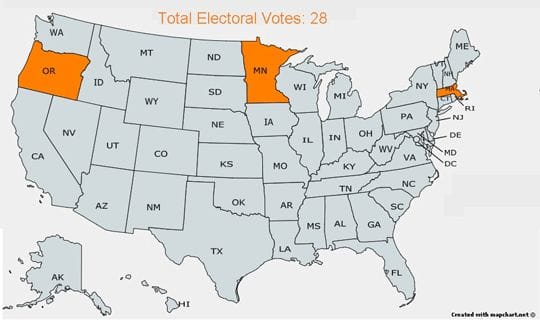Independent Parties Join Forces to End Two-Party Hold on Presidential Elections

6/1/2016 - The United Independent Party of Massachusetts has reached an agreement in principle to join with the Independent Party of Oregon and the Independence Party of Minnesota as a co-founder of a coalition of moderate and centrist third parties. The parties will convene a national conference (or teleconference) in August to discuss the joint nomination of a candidate for president.

The focus on presidential politics represents a significant shift for all three parties, which have tended to focus on local and state-level elections.
"People are tired of being snookered by the two party system and shocked by the depths to which political conversation has sunk," said UIP founder and chairman Evan Falchuk. "Now more than ever, we need a strong national movement for a sensible alternative to the endless nonsense. We are proud to join our friends in Oregon and Minnesota in this common cause and look forward to giving voters across the country real choices and serious alternatives."
"We are delighted to add the United Independent Party of Massachusetts to the coalition," noted Phil Fuehrer, State Chair of the Minnesota Independence Party. "Over the summer, we will continue to add member states and provide voters a competitive option to the two party duopoly."
"We are working hard to build a national coalition of parties to support a national Independent reform movement as an alternative to the Democrats and Republicans. The addition of the Massachusetts United Independent Party to the coalition is a significant step in the evolution of independent transpartisan politics that is starting to shake up our political system," said Rob Harris. "We are going to see more parties joining this movement as we move forward."
These three states together account for 28 electoral votes. The coalition now includes parties from the east coast, the west coast and the midwest. The coalition partners are all moderate political parties who share a focus on local good government and election and campaign finance reform.
Read more about these three parties:


